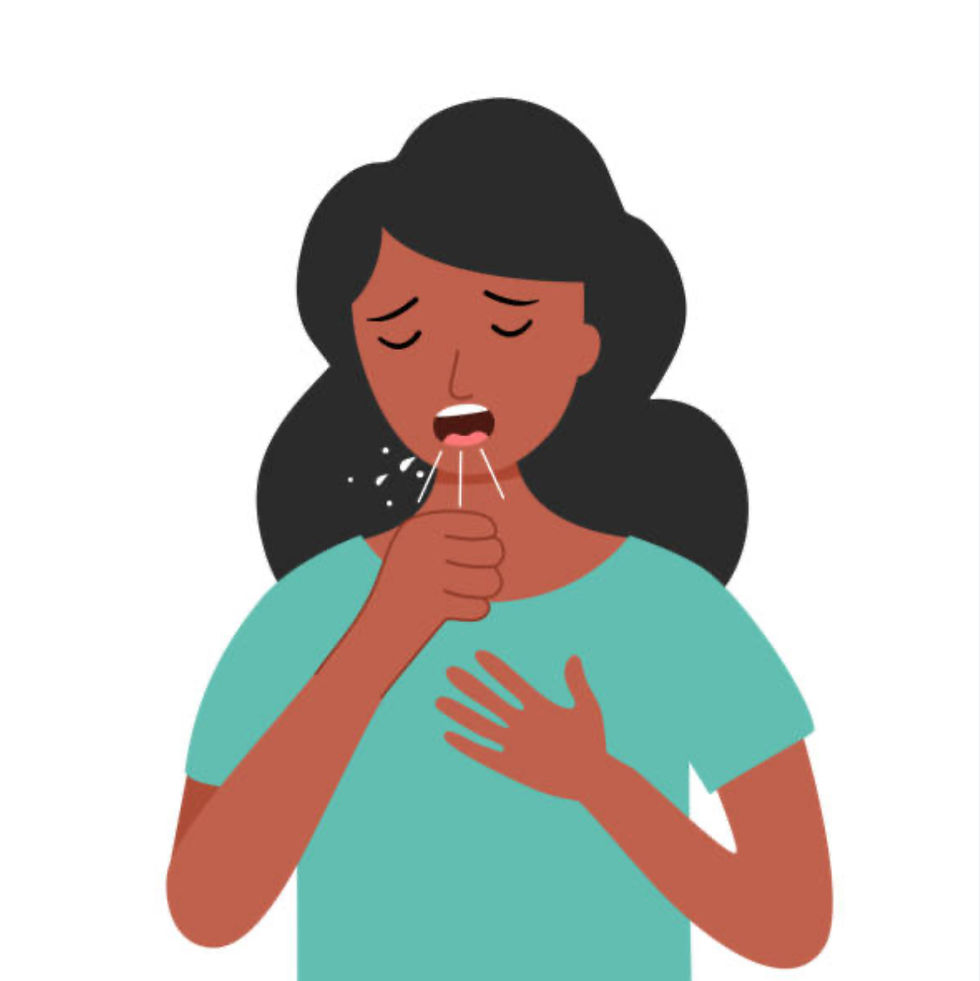When Silence Feels Safer: Caribbean Women, Emotional Suppression, and Health
- Nada Johnson

- Jul 16, 2025
- 4 min read
Unpacking how emotional suppression is mistaken for strength and how NJCCS helps release what’s been held in too long.

🧱 “Don’t Cry. Be Strong.”
From an early age, Caribbean girls are often taught to suppress their feelings, especially sadness, grief, or fear. Emotional control is seen as maturity, while crying is often ridiculed, discouraged, or punished. But this emotional stoicism comes at a cost.
Psychologists define emotional suppression as the chronic avoidance of emotional expression, especially in response to culturally reinforced expectations (Gross & Levenson, 1997). For Caribbean women, suppression is not just personal it’s generationally inherited and culturally reinforced (Bryant-Davis et al., 2020).

🧠 The Health Impact of Emotional Suppression
Studies have linked chronic emotional suppression to:
Increased risk of cardiovascular issues
Elevated cortisol levels and chronic inflammation
Higher incidence of depression and dissociative symptoms(Nolen-Hoeksema, 2012; Pennebaker & Beall, 1986)
One longitudinal study found that women who suppressed emotions consistently were more likely to develop immune dysfunction and sleep disturbances (Tsaousis et al., 2010). The emotional stoicism many Caribbean women are praised for may, in fact, be slowly harming their bodies.

💚 What I Help With:
At NJCCS, I gently support Caribbean women in reconnecting with their emotional selves without judgment or shame.
Emotional expression is reframed not as weakness, but as a critical part of health.
I help clients with:
Emotion Identification and Literacy→ Many clients know how to be “okay” but not how to feel safe being sad, scared, or soft.
Somatic Processing of Suppressed Emotions→ Trauma-informed bodywork helps release stored tension and frozen grief.
Shame-Free Emotional Expression Coaching→ Clients learn how to cry, share, and speak without apology.
Grief and Anger Normalization→ Space to process the emotions Caribbean women were taught to hide.
Intergenerational Healing Dialogue→ Explores how mothers and grandmothers passed down emotional silence and how to end the cycle.

🌿 How This Restores Emotional and Physical Wellness:
Lowers Stress and Inflammation→ Emotional expression improves immune health and cardiovascular regulation (Gross & John, 2003).
Improves Sleep and Emotional Regulation→ Expressing emotions helps regulate the nervous system and supports rest (Tsaousis et al., 2010).
Reduces Depression and Dissociation→ Naming and processing feelings builds emotional clarity and connection (Nolen-Hoeksema, 2012).
Increases Compassion Toward Self and Others→ Allowing emotion allows room for self-kindness, not just endurance.
Interrupts Intergenerational Silence→ Clients develop tools to create emotionally expressive families, changing the legacy.
🕊️ You Don’t Have to Hold It In Anymore
You don’t have to carry the grief alone.
At NJCCS, I make room for the tears, the rage, the relief and the release.
You were never meant to hold it all in.
📧 Contact me at info@nadajohnsonservices.com if this blog spoke to you.
Warm Regards,

Nada Johnson, MSW, RSW
Registered Social Worker, Psychotherapist / trained Family Mediator / EMDR Trained Therapist / Certified Racial Trauma Clinician / Mental Health & Sexual Violence Consultant / Professional Speaker

🌍Website: www.nadajohnsonservices.com
📩 Contact: info@nadajohnsonservices.com
Nada Johnson Consulting & Counselling Services - Online phone and video sessions available
Village Healing Centre: 240 Roncesvalles Avenue
C: 437-887-6146
Click here to join our newsletter and follow our platforms for empowering content, trauma recovery tools, and mental health support. Please share this post to help break the silence around trauma and promote healing in our communities. 🤝
📚 References
Bryant-Davis, T., Adams, T., Alejandre, A., & Gray, A. (2020). The trauma of racism: Implications for counseling Black women. Journal of Counseling Psychology, 67(5), 520–532.
Gross, J. J., & John, O. P. (2003). Individual differences in two emotion regulation processes: Implications for affect, relationships, and well-being. Journal of Personality and Social Psychology, 85(2), 348–362.
Gross, J. J., & Levenson, R. W. (1997). Hiding feelings: The acute effects of inhibiting negative and positive emotion. Journal of Abnormal Psychology, 106(1), 95–103.
Nolen-Hoeksema, S. (2012). Emotion regulation and psychopathology: The role of gender. Annual Review of Clinical Psychology, 8, 161–187.
Pennebaker, J. W., & Beall, S. K. (1986). Confronting a traumatic event: Toward an understanding of inhibition and disease. Journal of Abnormal Psychology, 95(3), 274–281.
Smith, C. P., & Williams, D. E. (2019). Holding it in: Emotional suppression among African diasporic women. Psychology of Women Quarterly, 43(2), 125–140.
Tsaousis, I., Panayiotou, G., & Ioannou, M. (2010). Emotion suppression and health outcomes in women: A three-year study. Health Psychology, 29(4), 408–417.

Want More Support for Your Professional & Personal Growth?
🔷Try Potential Unlocked™
In addition to counseling, NJCCS offers coaching through our sister brand, Potential Unlocked™, designed specifically for professional women navigating career, leadership, and life transitions.
We support clients with:
Communication and conflict strategy in the workplace
Career development and leadership coaching
Navigating workplace dynamics and burnout recovery
Building confidence in both personal and professional relationships (Online dating empowerment coaching, because personal growth impacts professional life too!)
👉 Visit www.potentialunlocked.ca to learn more or book a free 10-minute consultation call.




Comments